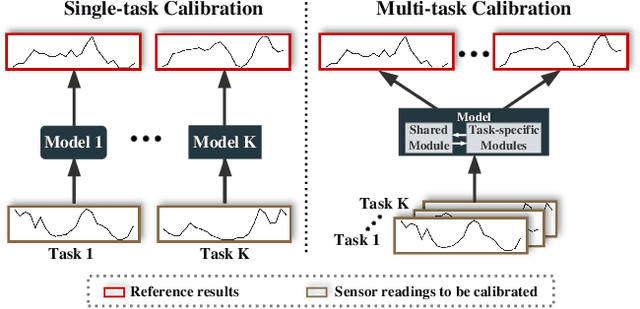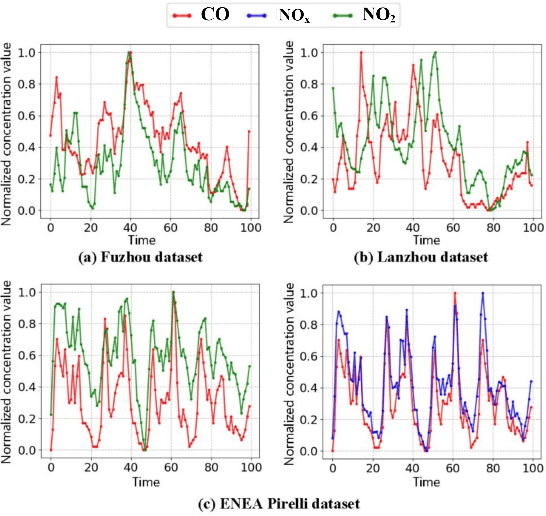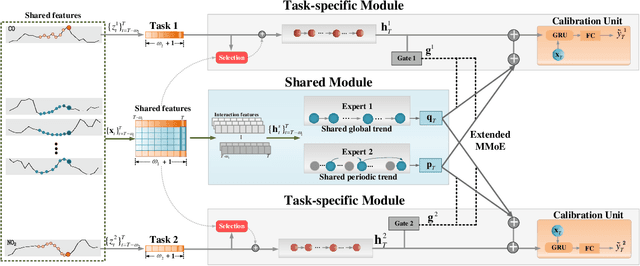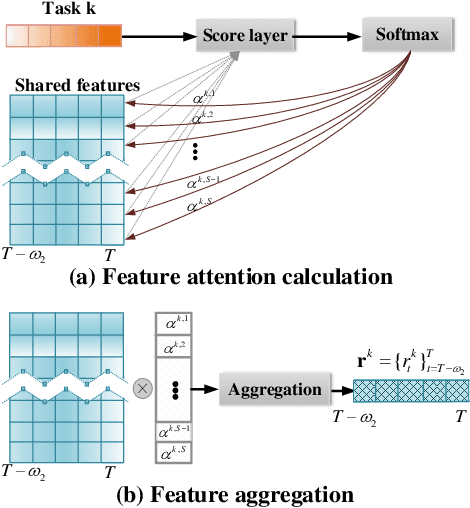Haomin Yu
SculptDrug : A Spatial Condition-Aware Bayesian Flow Model for Structure-based Drug Design
Nov 16, 2025Abstract:Structure-Based drug design (SBDD) has emerged as a popular approach in drug discovery, leveraging three-dimensional protein structures to generate drug ligands. However, existing generative models encounter several key challenges: (1) incorporating boundary condition constraints, (2) integrating hierarchical structural conditions, and (3) ensuring spatial modeling fidelity. To address these limitations, we propose SculptDrug, a spatial condition-aware generative model based on Bayesian flow networks (BFNs). First, SculptDrug follows a BFN-based framework and employs a progressive denoising strategy to ensure spatial modeling fidelity, iteratively refining atom positions while enhancing local interactions for precise spatial alignment. Second, we introduce a Boundary Awareness Block that incorporates protein surface constraints into the generative process to ensure that generated ligands are geometrically compatible with the target protein. Third, we design a Hierarchical Encoder that captures global structural context while preserving fine-grained molecular interactions, ensuring overall consistency and accurate ligand-protein conformations. We evaluate SculptDrug on the CrossDocked dataset, and experimental results demonstrate that SculptDrug outperforms state-of-the-art baselines, highlighting the effectiveness of spatial condition-aware modeling.
A Crystal-Specific Pre-Training Framework for Crystal Material Property Prediction
Jun 09, 2023



Abstract:Crystal property prediction is a crucial aspect of developing novel materials. However, there are two technical challenges to be addressed for speeding up the investigation of crystals. First, labeling crystal properties is intrinsically difficult due to the high cost and time involved in physical simulations or lab experiments. Second, crystals adhere to a specific quantum chemical principle known as periodic invariance, which is often not captured by existing machine learning methods. To overcome these challenges, we propose the crystal-specific pre-training framework for learning crystal representations with self-supervision. The framework designs a mutex mask strategy for enhancing representation learning so as to alleviate the limited labels available for crystal property prediction. Moreover, we take into account the specific periodic invariance in crystal structures by developing a periodic invariance multi-graph module and periodic attribute learning within our framework. This framework has been tested on eight different tasks. The experimental results on these tasks show that the framework achieves promising prediction performance and is able to outperform recent strong baselines.
MTNet: A Multi-Task Neural Network for On-Field Calibration of Low-Cost Air Monitoring Sensors
May 10, 2021



Abstract:The advances of sensor technology enable people to monitor air quality through widely distributed low-cost sensors. However, measurements from these sensors usually encounter high biases and require a calibration step to reach an acceptable performance in down-streaming analytical tasks. Most existing calibration methods calibrate one type of sensor at a time, which we call single-task calibration. Despite the popularity of this single-task schema, it may neglect interactions among calibration tasks of different sensors, which encompass underlying information to promote calibration performance. In this paper, we propose a multi-task calibration network (MTNet) to calibrate multiple sensors (e.g., carbon monoxide and nitrogen oxide sensors) simultaneously, modeling the interactions among tasks. MTNet consists of a single shared module, and several task-specific modules. Specifically, in the shared module, we extend the multi-gate mixture-of-experts structure to harmonize the task conflicts and correlations among different tasks; in each task-specific module, we introduce a feature selection strategy to customize the input for the specific task. These improvements allow MTNet to learn interaction information shared across different tasks, and task-specific information for each calibration task as well. We evaluate MTNet on three real-world datasets and compare it with several established baselines. The experimental results demonstrate that MTNet achieves the state-of-the-art performance.
 Add to Chrome
Add to Chrome Add to Firefox
Add to Firefox Add to Edge
Add to Edge